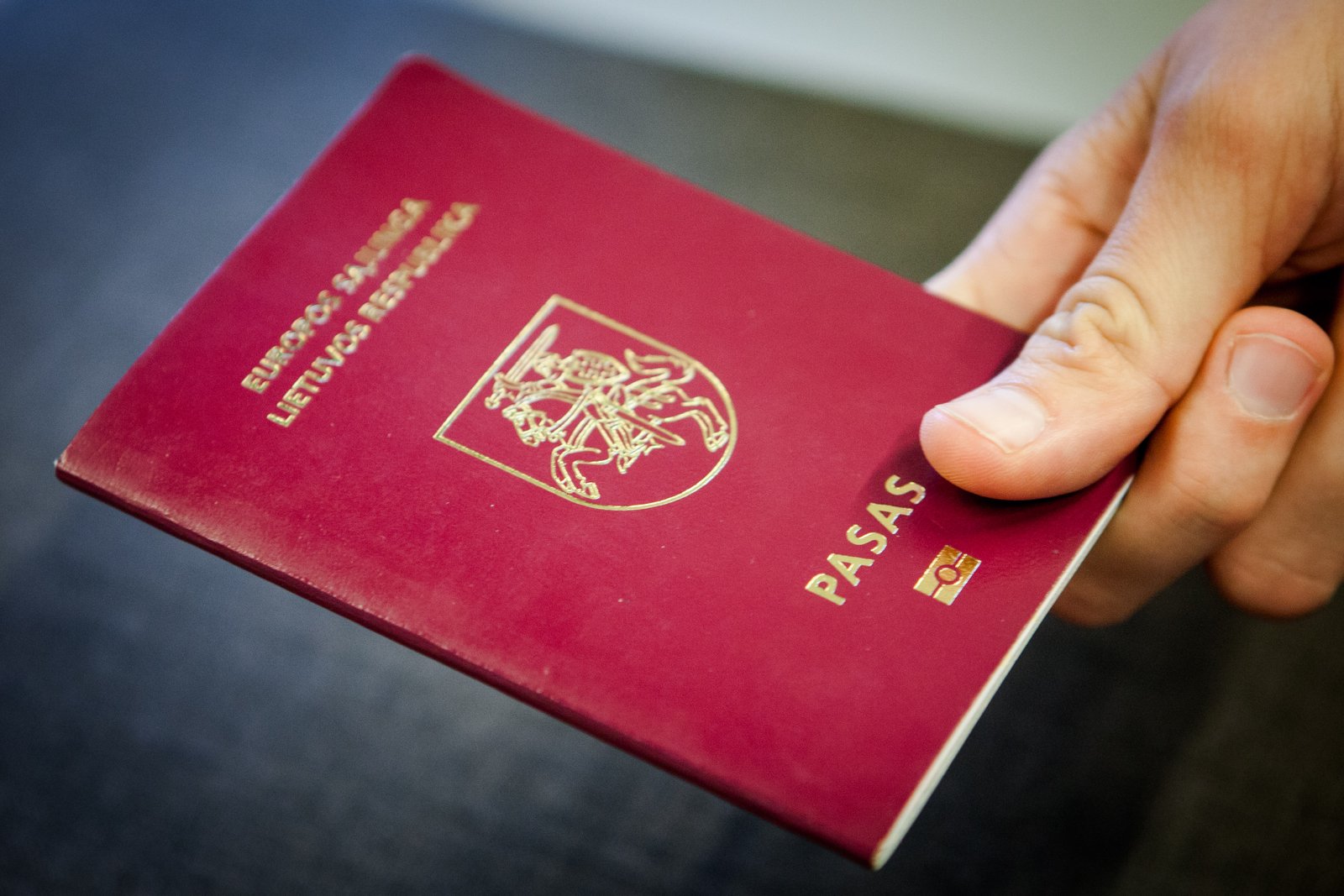

Passport of the Republic of Lithuania DELFI / Šarūnas Mažeika
There is an interesting topic in sports society discussed recently – what are the ways for a sportsperson of Lithuanian origin but not possessing citizenship of Lithuania to receive one to be able to represent Lithuania on the international level? The topic is not new and comes up from time to time, but this time it was revived due to recent changes in citizenship laws.
Lukas Fridrikas, an Austrian football player, the son of the legendary Lithuanian football and handball players, scores goals in Austria. As the career of a 23-year-old footballer rises, the question becomes more and more relevant – would the striker decide to accept Lithuanian citizenship in order to help the football team of the homeland of his famous parents? While Lithuanian National Football Team head coach Valdas Urbonas admitted that first of all Lukas needs to express his clear intentions in this regard and further considerations or steps can only be planned after that, Marius Devyžis, a partner at Primus Law Firm, also shared his opinion on citizenship issue from a legal perspective spoke to 15min.lt.
The Law on Citizenship of the Republic of Lithuania provides the complete list of the cases when a citizen of the Republic of Lithuania may at the same time be a citizen of another state. The law clearly sets the main rule that dual citizenship is allowed, however, only in cases that fall within the closed list set by the law.


By the latest amendments to the Law on Citizenship of the Republic of Lithuania, the list of such cases was amended by adding a rule that dual citizenship may be acquired by the person who has acquired citizenship of the Republic of Lithuania at birth and, subsequentially, lost it because of becoming a citizen of another state before reaching 18 years of age.
This new addition to the law extended the list of the exceptions allowing dual citizenship in cases when: (1) a person acquired the citizenship of the Republic of Lithuania at BIRTH, and (2) such person acquired the citizenship of another country before the age of 18, but NOT AT BIRTH.
Although different states have different rules for determining the citizenship for a new-born, they all derive from one or both of 2 main legal principles – the acquisition of children’s citizenship depends on (1) the citizenship of the parents (so-called “principle of blood”; Latin: ius sanguinis), or (2) on the birthplace (so-called “principle of the sun”; in Latin, ius soli).
As a general rule, regardless of the country in which the child is born, a child acquires citizenship of Lithuania if at least one of the parents is a citizen of the Republic of Lithuania at the time of the child’s birth. However, if a child later acquires the citizenship of another state (e.g. because he/she together with the parents acquire the citizenship of another country of their residence), he/she by default loses Lithuanian citizenship. The new addition to the law deals exactly with such cases when the citizenship of such child changes before 18th birthday.
Earlier this year, there was great news that Ignas Brazdeikis, a Lithuanian-born NBA player with Canadian citizenship, has had his Lithuanian citizenship restored. In Ignas’ situation a new provision of the law suited him perfectly: being born in Lithuania with his parents – citizens of the Republic of Lithuania, he later moved to Canada, where the family became Canadian citizens before Ignas turned 18.
Unfortunately, Lukas Fridrikas’ situation, might be different if, at the time of Lukas’s birth, both of his parents were no longer citizens of Lithuania. This detail plays a major role and if such presumption is true, Lukas did not acquire the citizenship of Lithuania at birth and, therefore, it prevents him from using the “fast track” towards the citizenship of Lithuania. Marius Devyžis, the sports law expert, states that even in this situation, Lukas would still have the possibility to acquire the citizenship of Lithuania without the necessity to give up his Austrian passport, however, this would only be possible by the way of exception granted by the President of the Republic of Lithuania which is used relatively rarely due to very strict regulation and related limitations.
While Prime Minister Gintautas Paluckas does not take issue with the statements made by the…
Lithuanian economists are surprised to see our country's economic growth: the Estonian economy has been…
"The fate of Nemuno Aušra (Dawn of Nemunas) in the coalition has been decided; they…
Airvolve, a Lithuanian dual-purpose aeronautics company, has successfully completed its first round of testing and…
The world is becoming smaller, more intertwined, and increasingly fragmented, with many of the previous…
In recent years, Vilnius, the vibrant capital of Lithuania, has experienced a culinary renaissance. While…